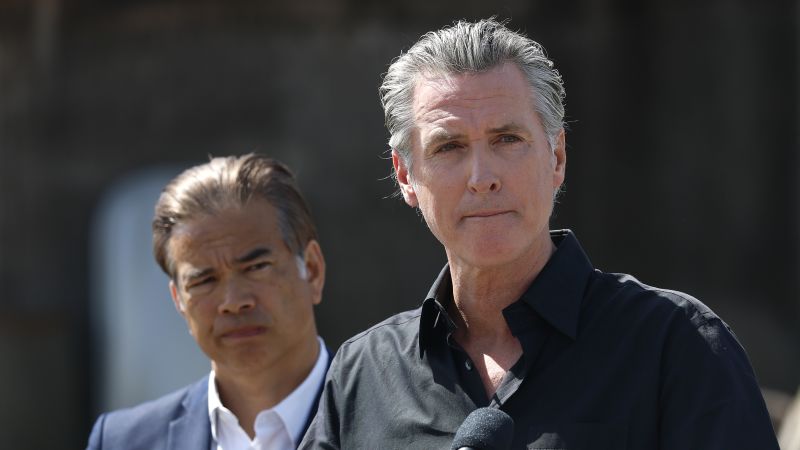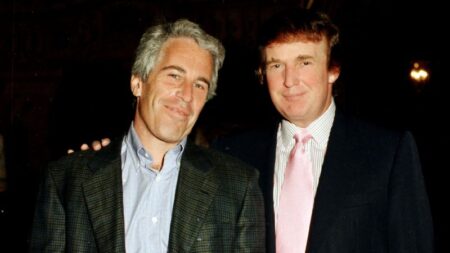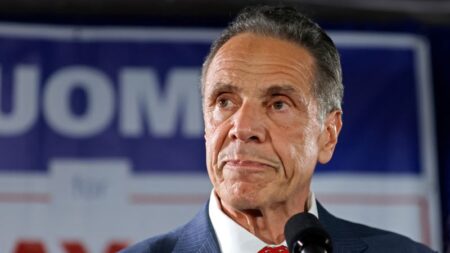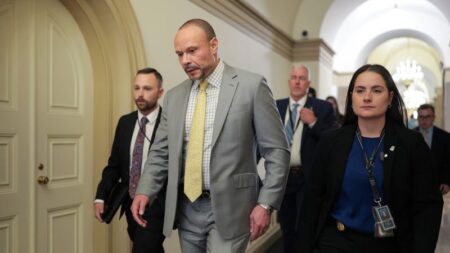Over the past few months, Democratic politicians have focused their efforts on standing up to former President Donald Trump, particularly now that he is serving a second term. One figure at the forefront of this challenge is California Governor Gavin Newsom, who faces the pressing task of determining what it truly means to stand up against Trump’s administration. This new chapter in American politics is not just about maintaining vocal opposition but also navigating the complex and often adversarial dynamics that come into play between state and federal authority.
As tensions rise, both allies and critics observe closely how Newsom will handle the ongoing protests, especially as Trump escalates his tactics by calling in the National Guard and deploying active-duty Marines in California—actions taken despite objections from the governor. The implications of how Newsom reacts to these federal interventions extend far beyond California and are expected to resonate within national discourse for years to come. This notion of testing boundaries and standing firm against federal overreach outlines a significant aspect of Newsom’s approach during this tumultuous time.
Adding another layer to this situation, Newsom has addressed the realities he and other Democratic governors face, as several have reached out to him to discuss scenarios that might emerge in their own states. Their conversations have been marked by a sense of caution as they contemplate how to effectively oppose Trump’s actions without endangering their political standings or trigger potential legal ramifications.
Compounding the complexity of this political struggle, every Democratic governor recently united in condemning Trump’s summons of the National Guard, labeling it an “alarming abuse of power.” Nevertheless, the governors tread lightly, balancing the urgent need for pushback against the Trump administration while being acutely aware of how their words might resonate within the context of potential legal battles. Newsom stands out as he seems determined to resist concessions made by some institutions, including universities and law firms that have acquiesced to Trump after facing pressure from the White House.
Newsom’s resonating message underscores a vital theme: submission to Trump’s authority and power is not an option. In remarks shared publicly, he urged Californians not to yield to fears of complicity or silence that Trump seeks to impose. The governor cautioned that if any group within society could be unjustly targeted based on mere suspicion or identity, then ultimately, no one would be safe. By taking a stand, he emphasized a collective threat to democracy and called for solidarity against authoritarian tendencies, reflecting a sentiment echoed by other Democratic leaders who see these issues as interconnected, deeply rooted threats to the very fabric of American governance.
Political voices like Connecticut Senator Chris Murphy have voiced their concerns about Trump’s authoritarian maneuvers. Murphy noted the dangers posed when opposition is stifled by fear, suggesting that this creates a pathway toward autocracy rather than democracy, as intimidated citizens may refrain from participating in protests. Similarly, New Jersey Senator Cory Booker articulated worries over Trump’s erosion of democratic norms, recognizing that the dangers now extend beyond the confines of California.
Interestingly, Newsom has thus far taken unorthodox steps, sometimes inviting Trump allies onto his podcast or adopting conciliatory tones in public discussions. His attempts at engagement, aimed at securing federal resources for California, demonstrate the multifaceted approach he has taken, contrasting with other Democrats who advocate for more direct confrontation. The recent escalation in tensions between Newsom and Trump has rekindled this political rivalry, with Trump suggesting that the governor should be arrested—a claim Newsom met defiantly by asserting that he would not be intimidated by the administration’s threats.
While some Democrats call for more vigorous opposition to violence during protests, highlighting the need for accountability, there is a broader recognition that these political maneuvers cannot occur in a vacuum. The unfolding drama is being watched closely by citizens across the country, particularly in other immigrant-heavy communities. Leaders have urged their constituents to exercise their rights peacefully and assertively, in the face of Trump’s inflammatory rhetoric regarding immigration policy and enforcement.
Ultimately, the evolving political landscape surrounding the conflict between state rights and federal overreach presents significant challenges for both parties. Democrats are recognizing the need to tackle Trump’s policies head-on, rather than retreating in fear of his backlash. Figures like Texas Representative Greg Casar have reinforced the idea that voters, regardless of political affiliation, are increasingly disillusioned by authoritarian tactics. As such, Democrats must confidently convey their positions to ensure they stay aligned with the principles of democracy and justice, effectively combating Trump’s perceived overreach and advocating for the protection of civil liberties.











